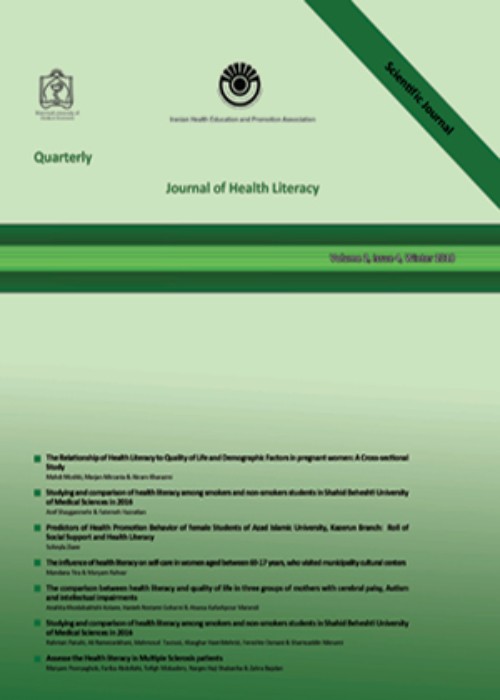Breast Cancer Prevention Behaviors In women with low levels of health literacy of Reproductive Age: Application of Health belief Model
Breast cancer is the most common malignant disease in women and the leading cause of death worldwide. Early detection of this cancer greatly increases the chances of successful treatment. This study was conducted to determine the effect of an educational intervention based on the health belief model on adopting breast cancer prevention behaviors in women of reproductive age.
This randomized controlled trial was performed on 84 (42 cases per group) women of reproductive age from 2020 to 2021 in Qazvin, Iran. The intervention group was subjected to educational intervention based on health belief model- provided in four sessions through e-learning and uploading the pre-prepared educational contents in a social media group. Participantes in both groups completed the questionnaire before, immediately after, and three months after the intervention. Data were analyzed by SPSS 16 software
After the intervention, the mean scores of health belief model constructs (awareness, perceived sensitivity, perceived severity, perceived benefits, perceived barriers, perceived self-efficacy, cues to action, and behavior) were significantly higher in the intervention group than in the control group (p<0.05). While the mean score of perceived sensitivity and guideline for operation in the intervention group was significantly higher than the control group after intervention.
The health belief model could effectively promote breast cancer prevention behaviors in women of childbearing age.
- حق عضویت دریافتی صرف حمایت از نشریات عضو و نگهداری، تکمیل و توسعه مگیران میشود.
- پرداخت حق اشتراک و دانلود مقالات اجازه بازنشر آن در سایر رسانههای چاپی و دیجیتال را به کاربر نمیدهد.



